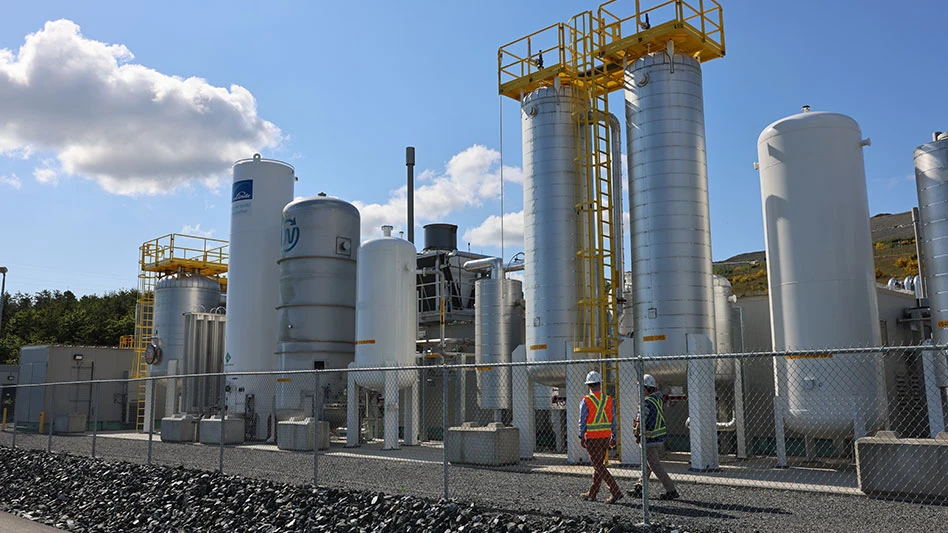
Photo courtesy of NASCAR
Russellville, Arkansas-based organics processing firm Denali has partnered with NASCAR and Chicago-based food services and restaurant company Levy in which the three organizations intend to collect food scraps generated at 11 NASCAR tracks and divert the material from landfills.
This year, the collection program will take place at the tracks owned by NASCAR, including the Daytona International Speedway in its headquarters city of Daytona Beach, Florida.
“Denali is on a mission to replenish the earth by repurposing organic waste into valuable resources,” says Eric Speiser, the company’s chief revenue officer. “Working with sports organizations like NASCAR allows us to make a significant impact on the environment while helping our customers achieve their sustainability goals and contribute to a cleaner future.”
The partner companies estimate NASCAR races generate an average of 5,000 pounds of food waste per event.
“NASCAR is proud to announce this national food recycling program across 11 of NASCAR’s owned tracks—one that we believe is among the first major sports leagues to take a nationwide approach to recycling food," NASCAR Head of Sustainability Riley Nelson says. “In 2024, NASCAR recycled nearly 57,000 pounds of food from events across the country, and we look forward to building on that momentum in 2025.”
As a first step in the program, NASCAR will work with Levy to donate leftover and edible products to food insecure families in local communities, according to the companies. In 2024, Levy helped donate 13,520 pounds of food following NASCAR Cup Series races.
Food that cannot be donated will be collected by Denali and converted into compost, soils, fertilizer and animal feed. Denali estimates the race event effort will help it collect 80,000 pounds (40 tons) of food waste in 2025.
“This amounts to a reduction in greenhouse gas emissions of 26.14 metric tons of CO2, the equivalent of charging more than 2 million smartphones over 22 hours,” the company adds.
“The foundation of our sustainability strategy is our goal to reduce food waste by 50 percent by 2030,” says Mary McCarthy, vice president of sustainability for Levy. “Our teams focus on three things: waste prevention, reducing waste at the source and recovery to divert surplus food. Working with Denali and NASCAR is an incredible opportunity for our teams to create a positive impact in their communities.”
In 2023, Denali says it processed 7 million tons of organic materials, including 850,000 tons of food waste collected from grocery stores, event and entertainment venues, hotels and restaurants.
“Working with Denali and Levy to collect and recycle food waste at our races illustrates the collaborative effort needed for NASCAR to achieve the goals set across our operation over the next decade,” Nelson says. “The positive impact of this collective effort paves the way for future opportunities.”
Latest from Waste Today
- Bioenergy Devco rebrands
- Ecogensus acquires two recycling facilities
- Routeware celebrates 25 years of innovation
- Montana city approves compost facility improvements
- Willows offer a nature-based solution to reducing leachate volumes
- REI outdoors retailer hits zero waste target
- Minnesota awards $1M in waste reduction grants
- Nashville, Tennessee, inches closer to establishing standalone solid waste department





